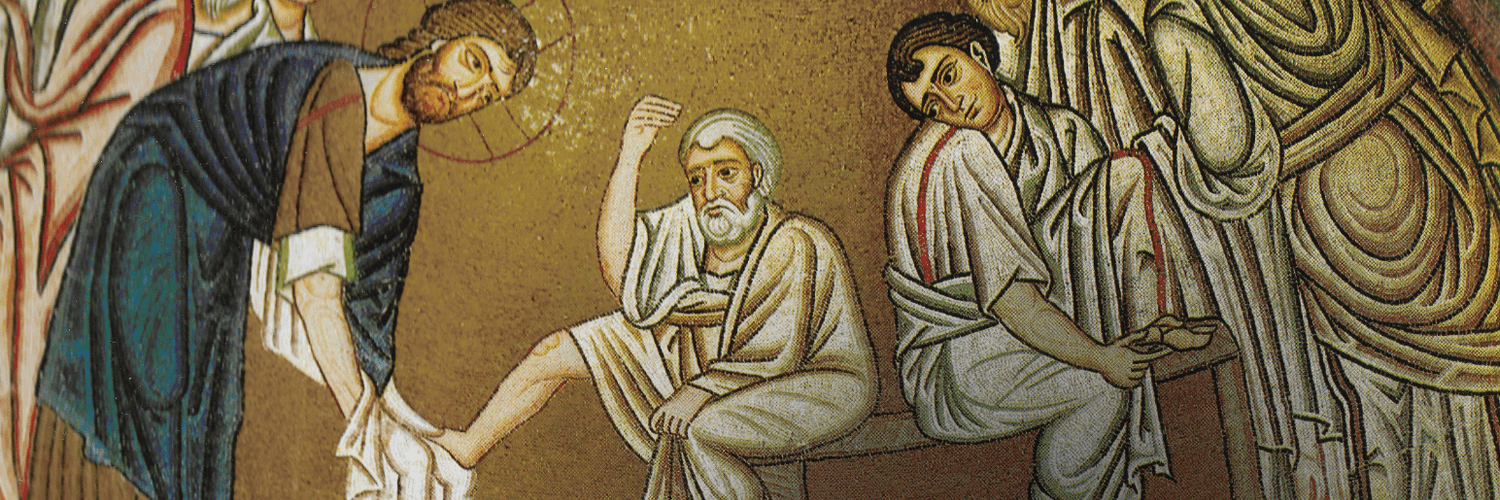Fruit of the Earth and Work of Human Hands: Eucharist as Integral Ecology

Emmanuel Katongole highlights the connections between Eucharist and ecology with a view of making two interconnected claims, namely that an adequate understanding of the Eucharist intensifies and shapes the Christian responsibility for the care of Our Common Home, and that efforts for the care of our Common home are Eucharistic in more than a symbolic sense. They are truly a sacrament - sign and reality - of God’s love for the earth. Drawing from the work of Bethany Land Institute in Uganda, he displays the dynamic relationship between these two claims.
Experience the Event
Thursday, June 27, 2024 12:00 pm
In 2022, the United States Conference of Catholic Bishops (USCCB) announced that the Church in this country would undertake a Eucharistic Revival, as a way to bolster Catholics’ belief in the real presence of Christ–body, blood, soul, and divinity–in the Eucharist. This Eucharistic Revival will culminate in a nationwide pilgrimage to the city of Indianapolis in July 2024. In the months leading up to this pilgrimage, the McGrath Institute for Church Life is contributing to this revival by underscoring the intrinsic connection between the Eucharist and Catholic social teaching.
Why are we concerned about the link between Eucharistic devotion among Catholics and our commitment to social justice? Because the Catechism of the Catholic Church teaches that “the Eucharist commits us to the poor” (CCC, n. 1397). Because Pope Benedict XVI declared in his encyclical Deus Caritas Est that “A Eucharist which does not pass over into the concrete practice of love is intrinsically fragmented” (Deus Caritas Est, n.14. ). And because we have it on good authority that whenever we feed the hungry, give drink to the thirsty, shelter the homeless, welcome the stranger, we encounter Christ, Who assures that whatever you have done to the least among you, you do for me (cf. Matthew 25:31-46). Thus our devotion to the Body of Christ in the Eucharist must be accompanied by our equally fervent devotion to serve the entire human family, especially the poor and those who are in any way oppressed.
This theme will be taken up by the Office of Life and Human Dignity at the McGrath Institute for Church Life in an eight-part series of The Eucharist and Catholic Social Teaching. In this session, Emmanuel Katongole highlights the connections between Eucharist and ecology with a view of making two interconnected claims, namely that an adequate understanding of the Eucharist intensifies and shapes the Christian responsibility for the care of Our Common Home, and that efforts for the care of Our Common Home are Eucharistic in more than a symbolic sense. They are truly a sacrament – sign and reality – of God’s love for the earth. Drawing from the work of Bethany Land Institute in Uganda, he displays the dynamic relationship between these two claims.
Speaker:
Emmanuel Katongole is Professor of Theology and Peace Studies. He holds a joint appointment with the Keough School of Global Affairs, where he serves as a full time faculty of the Kroc Institute for International Peace Studies.
For more information visit the McGrath Institute for Church Life. Register to receive emails about upcoming events from our Religion & Spirituality learning community by clicking on the “Register Here” button.
MoreMeet the Faculty: Emmanuel Katongole

Emmanuel Katongole is Professor of Theology and Peace Studies. He holds a joint appointment with the Keough School of Global Affairs, where he serves as a full time faculty of the Kroc Institute for International Peace Studies. Before joining the University of Notre Dame in January 2013, he served as Associate Professor of Theology and World Christianity at Duke University, and as founding co-director of the Duke Center for Reconciliation. A member of the Contending Modernities Initiative team, Katongole coordinates an inter-disciplinary research project, which investigates how religious and secular forces compete or collaborate in shaping new modes of authority, community and identity within the context of nation-state modalities in Africa. He is a Catholic priest of Kampala Archdiocese, Uganda where he was ordained in 1987.
His most recent book is Who are My People? Love, Violence and Christianity in SubSaharan Africa (Notre Dame Press, 2022).
Katongole’s other books include Born From Lament: On the Theology and Politics of Hope in Africa (Eerdmans, 2017), The Journey of Reconciliation: Groaning for A New Creation in Africa (Orbis, 2017), The Sacrifice of Africa: A Political Theology for Africa (Eerdmans, 2010), Stories from Bethany: On the Faces of the Church in Africa (Paulines, 2012), Mirror to the Church: Resurrecting Faith after Genocide in Rwanda, (Zondervan, 2009), Reconciling All Things: A Christian Vision for Justice, Peace and Healing (co-authored with Chris Rice, Resources for Reconciliation, 2008), A Future for Africa: Critical Essays in Christian Social Imagination (University of Scranton Press, 2005), African Theology Today (University of Scranton Press, 2002), and Beyond Universal Reason: The Relation Between Religion and Ethics in the Work of Stanley Hauerwas (Notre Dame Press, 2000).
